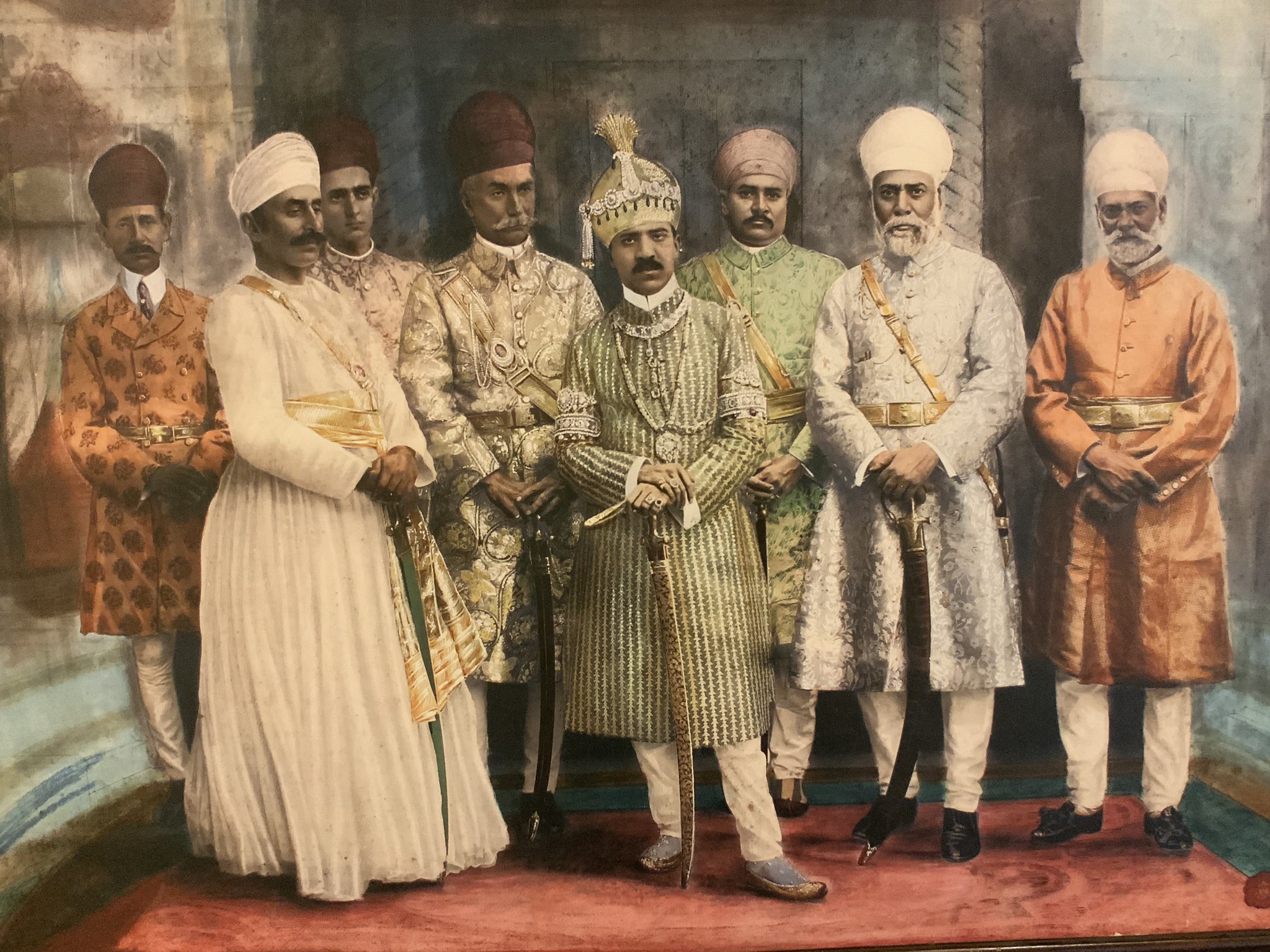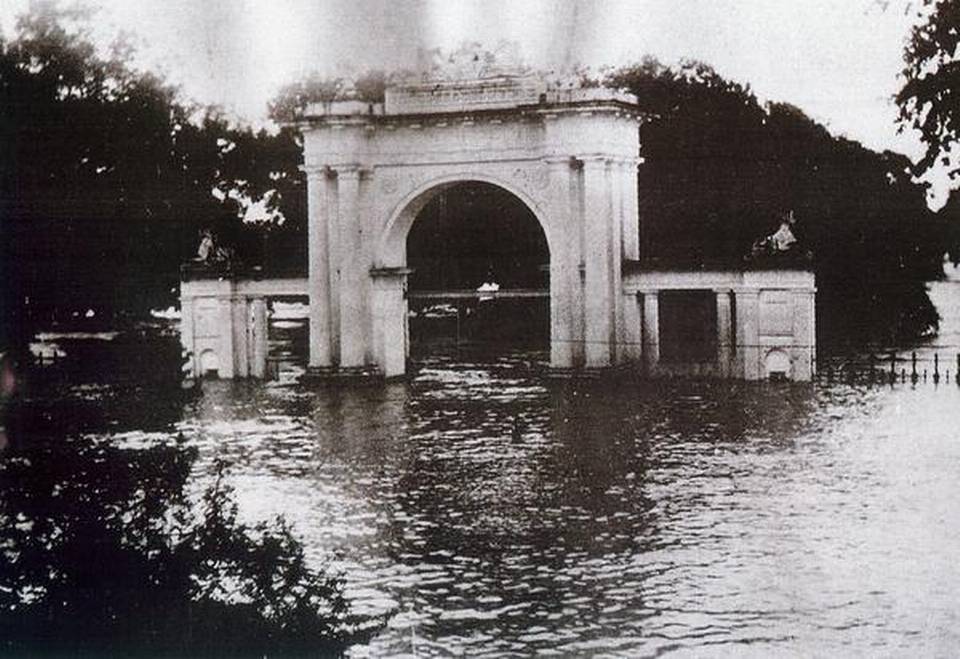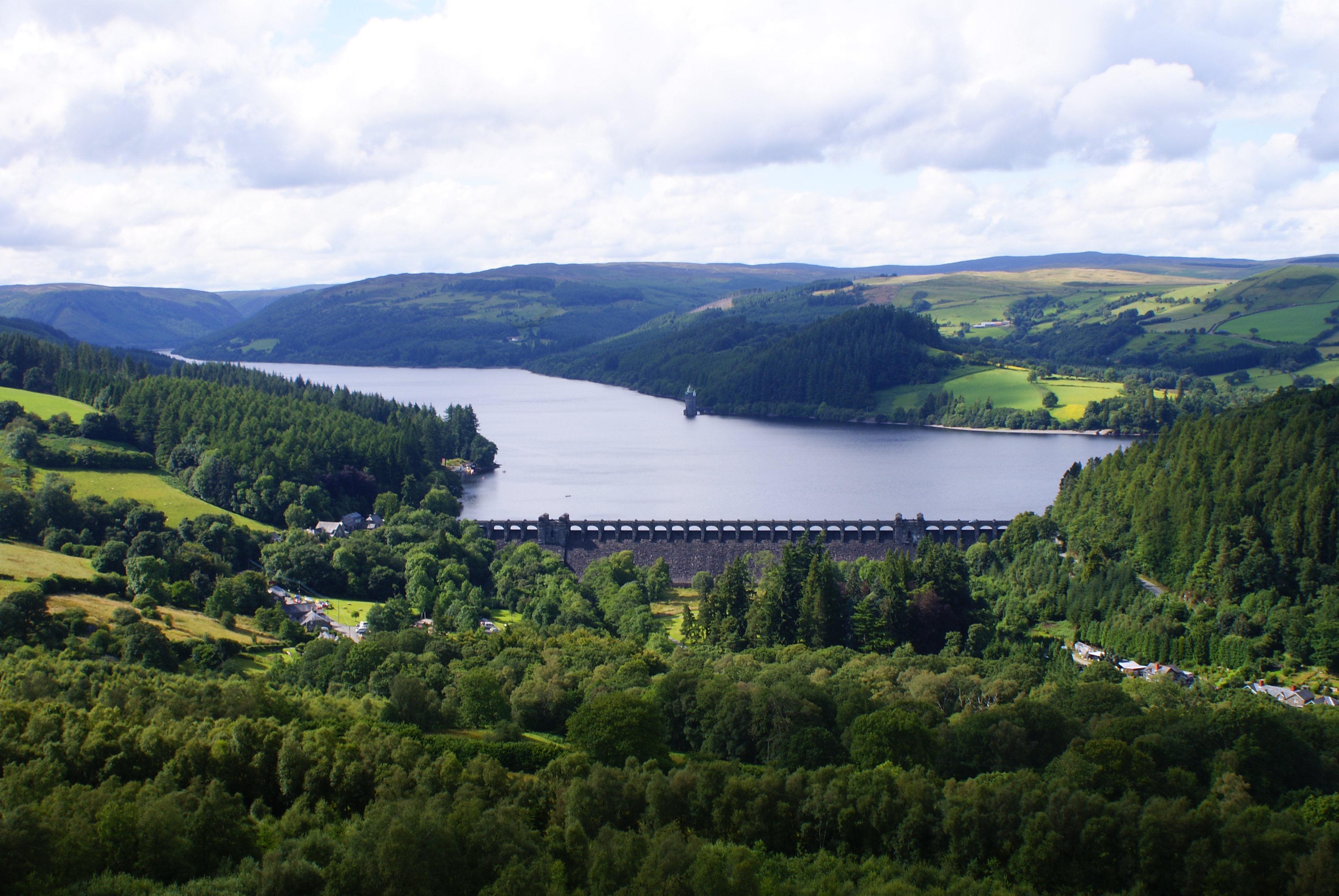|
Osman Sagar
Osman Sagar is a reservoir in the Indian city of Hyderabad. The lake is around 46 km², and the reservoir is around 29 km², with total level of 1,790 feet and a capacity of 3.9 tmc ft. History Osman Sagar was created by damming the Musi River in 1920, to provide an additional source of drinking water for Hyderabad and to protect the city after the Great Musi Flood of 1908. It was constructed during the reign of the last Nizam of Hyderabad State, Osman Ali Khan, hence the name. A princely guest house called Sagar Mahal, overlooking the lake and now a heritage building, was built as a summer resort of the last Nizam. Its location on the banks of the lake offers wonderful views. Telangana Tourism Departmenoperates a resort in the building. The breeze of the lake is very pleasant and has been popular with the locals since the Nizam's time. When Nizam consulted Sri Sir M.Visheswaraya regarding the twin problems of heavy floods in monsoon and acute shortage of water durin ... [...More Info...] [...Related Items...] OR: [Wikipedia] [Google] [Baidu] |
Kilometers
The kilometre ( SI symbol: km; or ), spelt kilometer in American English, is a unit of length in the International System of Units (SI), equal to one thousand metres ( kilo- being the SI prefix for ). It is now the measurement unit used for expressing distances between geographical places on land in most of the world; notable exceptions are the United States and the United Kingdom where the statute mile is the unit used. The abbreviations k or K (pronounced ) are commonly used to represent kilometre, but are not recommended by the BIPM. A slang term for the kilometre in the US, UK, and Canadian militaries is ''klick''. Pronunciation There are two common pronunciations for the word. # # The first pronunciation follows a pattern in English whereby metric units are pronounced with the stress on the first syllable (as in kilogram, kilojoule and kilohertz) and the pronunciation of the actual base unit does not change irrespective of the prefix (as in centimetre, millimet ... [...More Info...] [...Related Items...] OR: [Wikipedia] [Google] [Baidu] |
Hyderabad, India
Hyderabad ( ; , ) is the capital and largest city of the Indian state of Telangana and the ''de jure'' capital of Andhra Pradesh. It occupies on the Deccan Plateau along the banks of the Musi River, in the northern part of Southern India. With an average altitude of , much of Hyderabad is situated on hilly terrain around artificial lakes, including the Hussain Sagar lake, predating the city's founding, in the north of the city centre. According to the 2011 Census of India, Hyderabad is the fourth-most populous city in India with a population of residents within the city limits, and has a population of residents in the metropolitan region, making it the sixth-most populous metropolitan area in India. With an output of 74 billion, Hyderabad has the fifth-largest urban economy in India. Muhammad Quli Qutb Shah established Hyderabad in 1591 to extend the capital beyond the fortified Golconda. In 1687, the city was annexed by the Mughals. In 1724, Asaf Jah I, the ... [...More Info...] [...Related Items...] OR: [Wikipedia] [Google] [Baidu] |
Flood
A flood is an overflow of water ( or rarely other fluids) that submerges land that is usually dry. In the sense of "flowing water", the word may also be applied to the inflow of the tide. Floods are an area of study of the discipline hydrology and are of significant concern in agriculture, civil engineering and public health. Human changes to the environment often increase the intensity and frequency of flooding, for example land use changes such as deforestation and removal of wetlands, changes in waterway course or flood controls such as with levees, and larger environmental issues such as climate change and sea level rise. In particular climate change's increased rainfall and extreme weather events increases the severity of other causes for flooding, resulting in more intense floods and increased flood risk. Flooding may occur as an overflow of water from water bodies, such as a river, lake, or ocean, in which the water overtops or breaks levees, resulting i ... [...More Info...] [...Related Items...] OR: [Wikipedia] [Google] [Baidu] |
The Times Of Truth
''The'' () is a grammatical article in English, denoting persons or things that are already or about to be mentioned, under discussion, implied or otherwise presumed familiar to listeners, readers, or speakers. It is the definite article in English. ''The'' is the most frequently used word in the English language; studies and analyses of texts have found it to account for seven percent of all printed English-language words. It is derived from gendered articles in Old English which combined in Middle English and now has a single form used with nouns of any gender. The word can be used with both singular and plural nouns, and with a noun that starts with any letter. This is different from many other languages, which have different forms of the definite article for different genders or numbers. Pronunciation In most dialects, "the" is pronounced as (with the voiced dental fricative followed by a schwa) when followed by a consonant sound, and as (homophone of the archaic pr ... [...More Info...] [...Related Items...] OR: [Wikipedia] [Google] [Baidu] |
Himayat Sagar
Himayat Sagar is an artificial lake about from Hyderabad in Telangana, India. It lies parallel to a larger artificial lake Osman Sagar. The storage capacity of the reservoir is 2.9 tmc ft. History The construction of reservoirs on the Esi, a tributary of the Musi River, was completed in 1927, with the intention of providing a drinking water source for Hyderabad and protecting the city from floods, which Hyderabad suffered in 1908. It was built during the reign of the last Nizam of Hyderabad, Nizam VII and is named after his youngest son Himayat Ali Khan. The Himayat Sagar dam and Osman Sagar reservoirs provided continuous water supply to the twin cities of Hyderabad and Secunderabad until recently. Due to population growth, they are not sufficient to meet the cities' water supply-demand. The engineer at the time of construction was late Khaja Mohiuddin, son of Mohammed Hussein, Madri. The descendent of the royal family of the Nizam, Himayat Ali Mirza, has recently joine ... [...More Info...] [...Related Items...] OR: [Wikipedia] [Google] [Baidu] |
Wet Season
The wet season (sometimes called the Rainy season) is the time of year when most of a region's average annual rainfall occurs. It is the time of year where the majority of a country's or region's annual precipitation occurs. Generally, the season lasts at least a month. The term ''green season'' is also sometimes used as a euphemism by tourist authorities. Areas with wet seasons are dispersed across portions of the tropics and subtropics. Under the Köppen climate classification, for tropical climates, a wet season month is defined as a month where average precipitation is or more. In contrast to areas with savanna climates and monsoon regimes, Mediterranean climates have wet winters and dry summers. Dry and rainy months are characteristic of tropical seasonal forests: in contrast to tropical rainforests, which do not have dry or wet seasons, since their rainfall is equally distributed throughout the year.Elisabeth M. Benders-Hyde (2003)World Climates.Blue Planet Biom ... [...More Info...] [...Related Items...] OR: [Wikipedia] [Google] [Baidu] |
Osman Ali Khan
Mir Osman Ali Khan, Asaf Jah VII (5 or 6 April 1886 — 24 February 1967), was the last Nizam (ruler) of the Princely State of Hyderabad, the largest princely state in British India. He ascended the throne on 29 August 1911, at the age of 25 and ruled the Kingdom of Hyderabad between 1911 and 1948, until India annexed it. He was styled as His Exalted Highness-(H.E.H) the Nizam of Hyderabad, and was widely considered as one of the world's wealthiest person of all time. With some estimate placing his wealth at 2% of U.S. GDP, his portrait was on the cover of ''Time magazine'' in 1937. As a semi-autonomous monarch, he had his own mint, printing his own currency, the Hyderabadi rupee, and had a private treasury that was said to contain £100 million in gold and silver bullion, and a further £400 million of jewels (in 2008 terms). The major source of his wealth was the Golconda mines, the only supplier of diamonds in the world at that time. Among them was the Jacob Diamond ... [...More Info...] [...Related Items...] OR: [Wikipedia] [Google] [Baidu] |
Kingdom Of Hyderabad
Hyderabad State () was a princely state located in the south-central Deccan region of India with its capital at the city of Hyderabad. It is now divided into the present-day state of Telangana, the Kalyana-Karnataka region of Karnataka, and the Marathwada region of Maharashtra in India. The state was ruled from 1724 to 1857 by the Nizam, who was initially a viceroy of the Mughal empire in the Deccan. Hyderabad gradually became the first princely state to come under British paramountcy signing a subsidiary alliance agreement. During British rule in 1901 the state had an average revenue of Rs. 417,000,000, making it the wealthiest princely state in India. The native inhabitants of Hyderabad Deccan, regardless of ethnic origin, are called "Mulki" (countryman), a term still used today. The dynasty declared itself an independent monarchy during the final years of the British Raj. After the Partition of India, Hyderabad signed a standstill agreement with the new dominion of Ind ... [...More Info...] [...Related Items...] OR: [Wikipedia] [Google] [Baidu] |
Nizam
The Nizams were the rulers of Hyderabad from the 18th through the 20th century. Nizam of Hyderabad (Niẓām ul-Mulk, also known as Asaf Jah) was the title of the monarch of the Hyderabad State ( divided between the state of Telangana, Marathwada region of Maharashtra and Kalyana-Karnataka region of Karnataka). ''Nizam'', shortened from ''Nizam-ul-Mulk'', meaning ''Administrator of the Realm'', was the title inherited by Asaf Jah I. He was the former '' Naib'' (suzerain) of the Great Mughal in the Deccan, the premier courtier of Mughal India until 1724, the founding of an independent monarchy as the " Nizam (title) of Hyderabad". The Asaf Jahi dynasty was founded by Mir Qamar-ud-Din Siddiqi (Asaf Jah I), who served as a ''Naib'' of the Deccan sultanates under the Moghul Empire from 1713 to 1721. He intermittently ruled the region after Emperor Aurangzeb's death in 1707. In 1724 Mughal control weakened, and Asaf Jah became virtually independent of the Mughal Empire ... [...More Info...] [...Related Items...] OR: [Wikipedia] [Google] [Baidu] |
Great Musi Flood Of 1908
The Great Musi Flood was a devastating flood that occurred on 28 September 1908 in Hyderabad on the banks of Musi river. The city of Hyderabad was the capital of the Hyderabad State, ruled by the Nizam, Mir Mahbub Ali Khan. The flood, locally known as ''Thughyani Sitambar'', shattered the life of the people living in Hyderabad, killing 50,000 people It washed away three bridges — the Afzal, Mussallam Jung and Chaderghat — the Puranapul became the only link between two parts of the city. Flooding of Hyderabad The Musi river was the cause of frequent flood devastation of Hyderabad city till early 20th century. It had begun to swell dangerously on 27 September. The first flood warning came at 2 AM when the water flowed over Puranapul bridge. By 6 AM there was a cloudburst. The flood breached on Tuesday, 28 September 1908: The river rose 60 feet, flowing through the city. In 36 hours, 17 inches of rainfall was recorded, and the water level at Afzalgunj was about hi ... [...More Info...] [...Related Items...] OR: [Wikipedia] [Google] [Baidu] |
Reservoir
A reservoir (; from French ''réservoir'' ) is an enlarged lake behind a dam. Such a dam may be either artificial, built to store fresh water or it may be a natural formation. Reservoirs can be created in a number of ways, including controlling a watercourse that drains an existing body of water, interrupting a watercourse to form an embayment within it, through excavation, or building any number of retaining walls or levees. In other contexts, "reservoirs" may refer to storage spaces for various fluids; they may hold liquids or gasses, including hydrocarbons. ''Tank reservoirs'' store these in ground-level, elevated, or buried tanks. Tank reservoirs for water are also called cisterns. Most underground reservoirs are used to store liquids, principally either water or petroleum. Types Dammed valleys Dammed reservoirs are artificial lakes created and controlled by a dam constructed across a valley, and rely on the natural topography to provide most of the basin ... [...More Info...] [...Related Items...] OR: [Wikipedia] [Google] [Baidu] |
Meters
The metre ( British spelling) or meter ( American spelling; see spelling differences) (from the French unit , from the Greek noun , "measure"), symbol m, is the primary unit of length in the International System of Units (SI), though its prefixed forms are also used relatively frequently. The metre was originally defined in 1793 as one ten-millionth of the distance from the equator to the North Pole along a great circle, so the Earth's circumference is approximately km. In 1799, the metre was redefined in terms of a prototype metre bar (the actual bar used was changed in 1889). In 1960, the metre was redefined in terms of a certain number of wavelengths of a certain emission line of krypton-86. The current definition was adopted in 1983 and modified slightly in 2002 to clarify that the metre is a measure of proper length. From 1983 until 2019, the metre was formally defined as the length of the path travelled by light in a vacuum in of a second. After the 2019 re ... [...More Info...] [...Related Items...] OR: [Wikipedia] [Google] [Baidu] |


.png)




